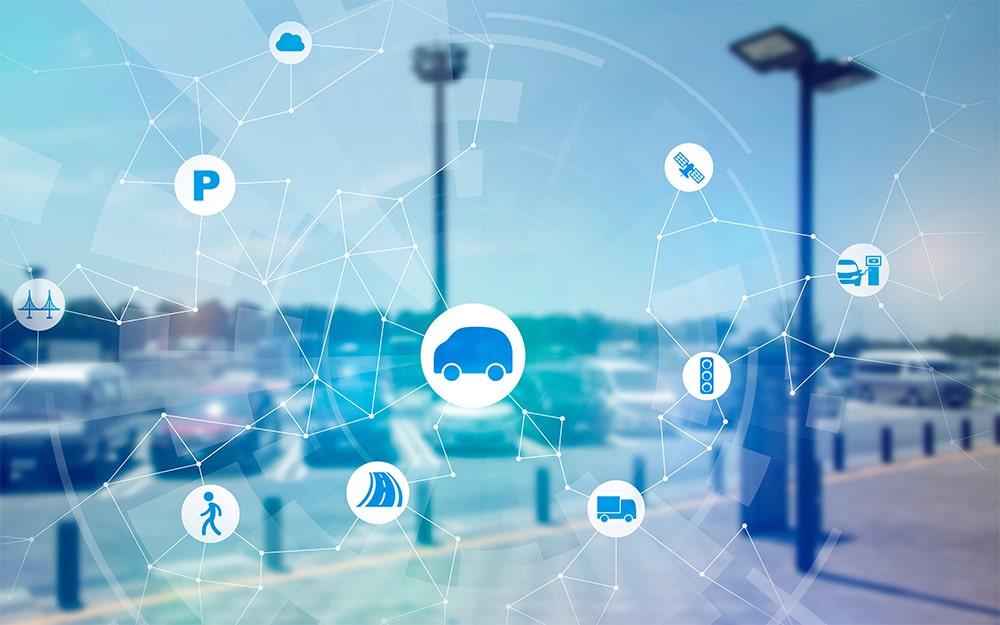Home » Leadership Moment » The Prudent Choice
Leadership Moment
The Prudent Choice
stock.adobe.com / metamorworks
Why Parking Operators Should Remain Technology Agnostic
In the ever-evolving world of parking management, the decision between remaining technology agnostic or developing a proprietary tech stack is a critical one. This column explores the compelling case for parking operators to maintain technology agnosticism, offering clients a range of technology solutions rather than developing their own proprietary systems.
Introduction
Parking operators play a pivotal role in driving revenue through technology/management practices and ensuring efficient, secure, and convenient parking services for their clients. To achieve this, we must make a crucial strategic decision regarding technology—whether to stay agnostic and offer a wide array of technological solutions from various vendors or to develop their own proprietary technology stack. In this article, I argue that, for various reasons, remaining technology agnostic is the prudent and practical choice.
1. Meeting Diverse Client Needs
One of the foremost arguments in favor of technology agnosticism is the ability to meet diverse client needs. Parking operators serve a wide range of clients, from small businesses with minimal technology requirements to large assets with complex operational and integration requirements. Clients often have an existing technology infrastructure, preferred vendors, or specific operational needs. By remaining technology agnostic, parking operators can accommodate these unique requirements and offer a tailored approach for each client.
Imagine a scenario where a parking operator has a proprietary tech stack that doesn’t align with a client’s existing operational needs. This misalignment could lead to costly integration challenges, disruption of services, and even loss of business. Staying agnostic, on the other hand, allows operators to integrate seamlessly with their clients’ preferred technology vendors, enhancing client satisfaction and business continuity.
2. Flexibility to Adapt to Technological Advancements
The technology landscape is characterized by rapid and continuous evolution. Parking management and its technology is no exception. New and improved solutions emerge regularly, from advanced access control systems to innovative payment processing methods. Remaining technology agnostic ensures parking operators have the flexibility to adapt to these advancements without the constraints of a proprietary system.
Consider the case of a parking operator that has invested heavily in developing its proprietary mobile payment app, only to find that a new industry-standard payment method gains widespread adoption that’s of interest to several of their current clients. Adapting to this new standard would be a cumbersome and costly process, potentially leading to competitive disadvantages. In contrast, technology-agnostic operators can swiftly adopt the new technology without the burden of sunk costs or system constraints, thereby ensuring they stay competitive and relevant.
3. Reducing Costs and Risks
Developing and maintaining proprietary technology comes with considerable costs and risks. Research, development, and ongoing support require substantial financial investments. Furthermore, there is the risk of unexpected technical issues, security breaches, and the need for continuous updates to remain compliant with evolving regulations. By staying technology agnostic, parking operators can sidestep these challenges, allowing them to allocate their resources more efficiently.
The expenses of developing and maintaining a proprietary tech stack can be especially burdensome for small and medium-sized operators. These organizations may not have the financial means to compete with established technology companies in terms of research and continued development. Staying agnostic allows them to access sophisticated technology solutions without the costs associated with development, making it an economically prudent choice.
4. Access to Specialized Expertise
Technology vendors often specialize in specific areas of the parking industry, such as access control, payment processing, or data analytics. Collaborating with multiple vendors enables parking operators to tap into the specialized expertise of these companies. It ensures that clients receive high-quality, proven solutions from experts in their respective fields.
Consider an operator that decides to develop its own access control system. To do so successfully, they need to acquire expertise in hardware, software development, and security. This approach may lead to substantial investments in hiring specialized talent and lengthy development timelines. Instead, staying technology agnostic and partnering with an access control specialist (or mobile payment app firm) guarantees a robust, proven solution without the associated challenges of in-house development.
5. Mitigated Liability
The development and maintenance of technology solutions bring inherent risks, including technical glitches, security breaches, and regulatory compliance issues. By remaining technology agnostic, parking operators can shift some of the liability and responsibility to technology vendors. In case of any technical issues or security breaches, vendors are typically responsible for addressing these issues, reducing the operator’s legal and financial exposure.
For example, if a security breach were to occur in a proprietary tech stack, the parking operator would be solely responsible for the breach’s consequences. This may result in reputational damage, legal action, and financial losses. In contrast, relying on specialized technology vendors with robust security measures in place helps minimize the operator’s liability and ensures that any issues are resolved swiftly by experts.
6. Leveraging Vendor Relationships
Parking operators often build strong relationships with various technology vendors. These relationships can be valuable for negotiating favorable terms, securing volume discounts, and ensuring smooth integrations. Vendors are motivated to maintain positive relationships with their clients and may offer incentives and support for technology-agnostic operators.
For instance, a parking operator that maintains technology agnosticism may have a long-standing relationship with a parking equipment vendor. This relationship could lead to cost savings and operational efficiencies, such as favorable pricing on hardware, priority access to software updates, and expedited customer support. These advantages can provide a competitive edge and enhance the operator’s ability to serve clients effectively.
7. Scalability Across Diverse Assets
Parking operators often manage a variety of parking assets, ranging from small surface lots to multi-level parking garages and even large mixed-use developments. Each type of asset may require different technological solutions. Staying technology agnostic allows operators to scale their services effectively, tailoring solutions to the unique needs of each asset.
Conclusion
I don’t know about you, but the last time I tried to fit a square peg into a round hole, it didn’t end well! Similarly, technology agnosticism allows parking operators to focus on their core competency of managing parking facilities while ensuring they provide clients with the most tailored and up-to-date technology solutions. Remaining technology agnostic is the prudent choice for parking operators looking to deliver superior service to their clients and stay competitive in the dynamic parking industry. ◆
-
This author does not have any more posts.













